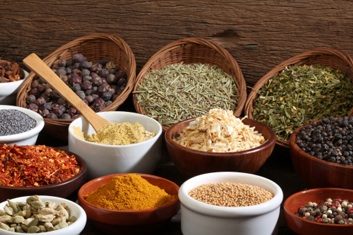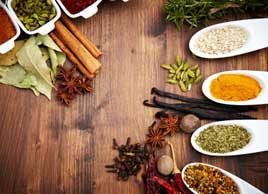
Soothe tendinitis
Curcumin (a yellow pigment that gives turmeric its intense colour) could reduce the pain of tendonitis, inflammation of the tissue connecting muscle to bone. In a 2011 study, researchers used human tendon cell cultures to show that curcumin inhibits the mechanism that sparks inflammation in tendons.

Help to fight breast cancer
Research from the University of Michigan Comprehensive Cancer Center shows that curcumin (in turmeric) and piperine (which provides black pepper’s flavour) could help prevent breast cancer by inhibiting growth of the cells that fuel tumour growth. Both decreased the number of those cells, but did not affect normal cells. Clinical trials are underway.

Zest up your love life
Scientists at the University of Guelph reviewed hundreds of studies on natural aphrodisiacs. The results, published in 2011, show saffron boosts erection quality in men.

Fight off disease
Many spices are noted for their antioxidants, which help neutralize free radicals (the cause of many diseases). The ORAC value-a measure of antioxidants in 100 grams-for turmeric is 127,068; cumin seed, 50,372; and black pepper, 34,053. (For antioxidant-packed unsweetened baking chocolate, it’s 49,944; for a glass of Cabernet Sauvignon, it’s 4,523.)

Kill harmful bacteria
Portuguese researchers studied coriander-seed oil for its ability to kill strains of bacteria including food-borne E. coli and salmonella. They found the oil damages the membrane around bacteria cells, leading to the cell’s death. The researchers see coriander oil as a possible food additive.

Fight obesity
Best Health reported in our November 2012 issue-and it’s worth repeating-that piperine, in black pepper, can block formation of new fat cells. More research is needed to determine if piperine can be used to treat obesity-related diseases.
Related:
• 5 tips for buying and storing spices
• 7 spices that heal
• Why spicy food is good for you
